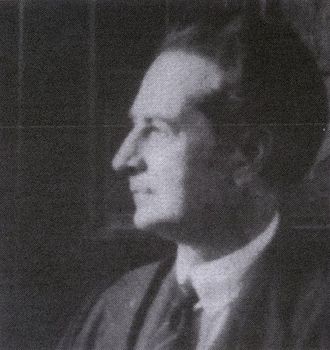Radcliffe-Brown, Alfred R.

Bio: (1881–1955) British anthropologist. Radcliffe-Brown studied at Cambridge University, where notable anthropologists Alfred C. Haddon and William H. R. Rivers were his mentors. Radcliffe-Brown did ethnographic fieldwork in the Andaman Islands (1906–1908) and Western Australia (1910–1912). He was a professor of anthropology at the University of Cape Town in South Africa, the University of Sydney (1926–1931), the University of Chicago (1931–1937), and the University of Oxford (1937–1946). Radcliffe-Brown founded the anthropological journal Oceania in 1930. His work as a professor, author, and administrator aided the consolidation of social anthropology as an academic discipline in the United Kingdom, South Africa, and Australia.
Structural-Functionalism
The theoretical approach he developed – structural-functionalism – was influenced by the theories of Émile Durkheim and Kropotkin. From Durkheim, Radcliffe-Brown borrowed the organic analogy, where society is viewed as a biological organism, positivism, and the view of society as composed of juridical roles, statuses, and norms that govern individual’s behavior and are independent of them. From Kropotkin Radcliffe-Brown took the idea of society as self-regulating system and the view that society should be studied through methods of natural sciences. Radcliffe-Brown focused on empirical investigations of social structures as a method for discovering the laws governing society. In order to do so social anthropology has to become the “natural science of human society”. In his view, social anthropology is a nomothetic inquiry that employs inductivist and empiricist approach to seeks for laws and generalizations. The ultimate goal is to build a single unified social science.
Structural-functionalism states that maintaining the social structure, which is composed of social institutions and relations, is the primary function of society, and that social structure has theoretical and explanatory priority over cultural patterns and individuals. For him, the most important information was how people behaved and how social structure shaped that behavior, and not what people believed or thought. The social structure is a network of “actual social relations” so the focus should be on the observable social facts rather than abstract ideas. Structural-functionalism explains social norms in the context of the interrelatedness of different social institutions in areas of economy, kinship, religion, and politics.
Following Rivers and Haddon, who instilled in him the importance of fieldwork for making cross-cultural comparisons, Radcliffe-Brown devised fieldwork questionnaires focused on determining the interrelations of different areas of society. This allowed him to make comparisons between different societies to determine universal relations and “general structural forms” in them.
Radcliffe-Brown discarded other theoretical approaches that try to reconstruct cultural history, like diffusionism and evolutionism, as a “conjectural history.” He saw the concept of “culture,” as a mere abstraction, that is subordinate to social structure. Structural-functionalism uses the notion of “function” to designate a “recurrent activity, which makes for structural continuity”. In this approach, all elements and customs in a society have a distinct function and are interconnected in an integrated coherent whole. Societies usually exist in equilibrium, but when a change happens in one part of a social structure it causes a ripple effect and changes other parts of that structure. In the end, social structure re-adjusts itself and returns to a static state.
Kinship
Radcliffe-Brown believed that kinship serves a crucial function in social structure, and was the most important organizing and integrating force in it. Kinship and kinship terms reflect social structure and social norms. In the article “The Study of Kinship Systems” (1941) he defines the family as the basic cell of the social structure. Different family relations (levirate, the sororate, the avunculate) and they corresponding kinship terminologies and kinship systems, are the basis for the network of social relations as they proscribe the rights and duties of every individual. Radcliffe-Brown developed the “descent theory”, which states that patrilinear and matrilinear descent groups are the main organizing principle for the majority of tribal societies. In the article “On Joking Relationships”, he researches mandatory jocking relationships that exists between two related people, in some societies. Jocking relations actually serve to alleviate tensions and conflicts and maintain peaceful relations, as jokes are not taken seriously and no party to the relationship takes offense.
Fields of research
Anthropology Conflict Cooperation Culture Customs, Social Family Kinship Matriarchy Patriarchy Solidarity TribeTheoretical approaches
Structural Functionalism (anthropological)Main works
The Andaman Islanders: A Study in Social Anthropology (1922);
“Preface”, In African Political Systems, (eds.) Meyer Fortes and E. E. Evans-Pritchard (1940);
Structure and Function in Primitive Society: Essays and Addresses (1952);
A Natural Science of Society (1957);
Method in Social Anthropology: Selected Essays, (ed.) M. N. Srinivas (1958).

